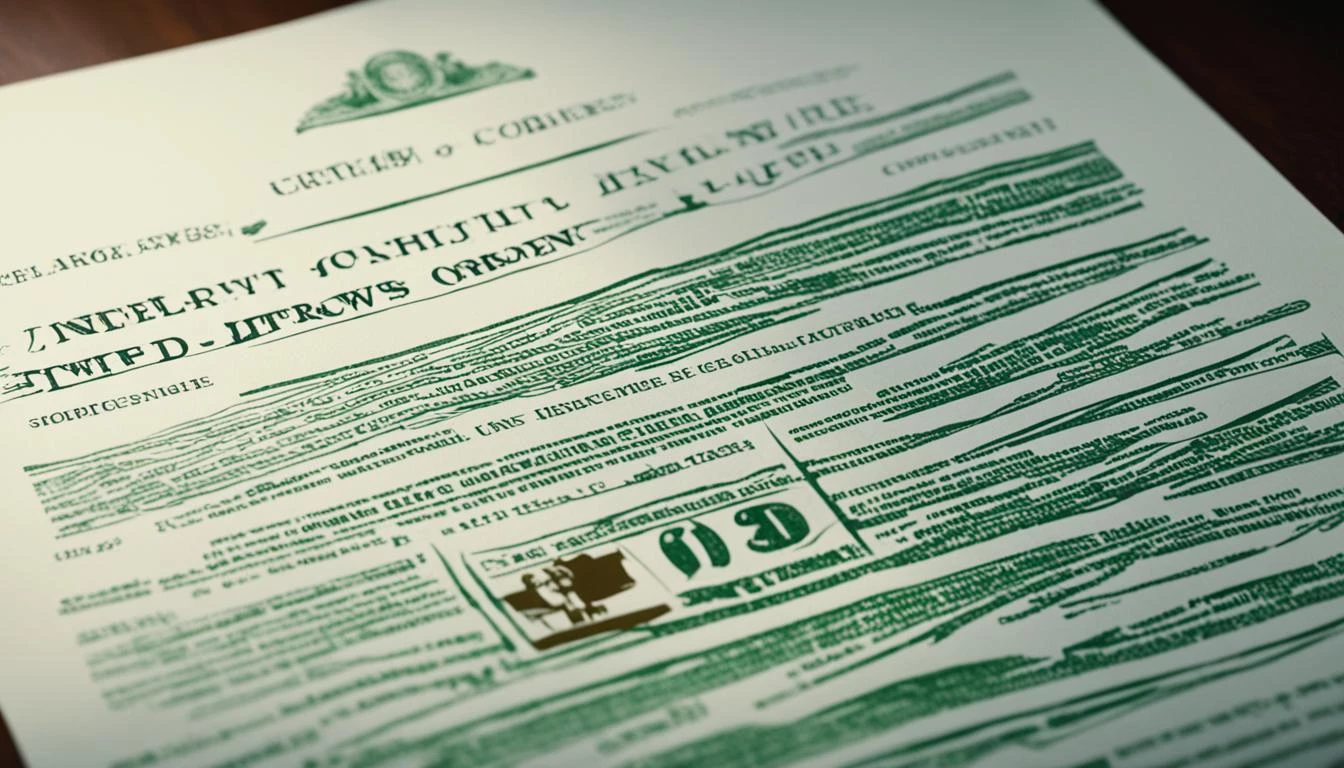Last Updated on June 13, 2024 by Dogs Vets
Did you know that in Texas, probate for a will is as simple as renewing a driver’s license? This fact highlights the ease of probate in the state. It makes some wonder if a trust is necessary to avoid probate.
In Texas, understanding wills and trusts makes estate planning easier. A will works after you pass, but a trust starts during your life. Though probate is simple in Texas, think about privacy, costs, and control over assets before deciding.
Key Takeaways:
- Texas probate process for a will is as simple as renewing a driver’s license.
- Wills must be updated every five years or after significant life changes.
- Trusts in Texas entail higher upfront costs but can avoid the probate process.
- Trusts provide privacy, unlike wills, which become public documents.
- Estate planning in Texas can be effectively managed with professional guidance.
Introduction to Estate Planning in Texas
Estate planning is crucial for protecting and distributing your assets as you wish. In Texas, it’s key to know the difference between wills and trusts for estate management. With a skilled estate planning attorney in Texas, you can understand Texas probate law well.

In Texas, probate processes are simpler than in many states. The right estate planning tools can save your heirs time and money. Wills and trusts differ in flexibility and privacy. Wills are public and easy to change. Trusts, on the other hand, are private and set once death occurs. Choosing wisely helps protect your assets and eases the process for your beneficiaries.
Estate planning in TX requires careful decisions on asset management. A savvy estate planning lawyer in Texas can guide you through legal options. They ensure your legacy lives on, respecting your final wishes.
What is a Will?
Understanding a last will and testament is key for good Texas estate planning. This document outlines how to distribute assets when someone dies. It helps give clear instructions to those left behind.
Definition and Purpose
A last will and testament is a legal paper that shares how to divide someone’s belongings after they die. It makes sure those who are meant to get something, do. People should update it after big life changes like marriage or having a baby.
When It Becomes Effective
A will only works after someone dies. In Texas, having a will makes probate—where a court checks the will—less expensive up front than in other places. This step is crucial to make sure the will is followed right.
Key Components of a Will
A detailed will has a few important parts. It names who gets what, which are the beneficiaries. It also picks an executor to handle the division process. For those with young kids, it can say who looks after them.
But remember, a will doesn’t skip over probate. It doesn’t keep things private or deal with decisions about your health or legal choices.

Summary: A will is vital in Texas for estate planning. It lists who gets assets, who handles the process, and wishes for asset sharing. While it guides after death and needs updates with big life changes, it doesn’t avoid probate or handle health or legal choices.
What is a Trust?
In Texas estate planning, a trust helps manage and give out assets. It is created while you are alive. A trust makes sure your assets go where you want.
Definition and Setup
A revocable living trust lets you control your assets when you’re alive. When you pass away, it goes smoothly to your chosen people. Putting assets into the trust takes time. In Texas, making a trust costs between $1,500 and $5,000.
Living Trusts: Revocable and Irrevocable
It’s key to pick between a revocable or an irrevocable trust. A revocable trust lets you change it anytime. But, it doesn’t protect against taxes and creditors as much. An irrevocable trust does offer this protection but you can’t change it easily. Knowing the difference helps in planning your estate in Texas.
Responsibilities of a Trustee
Trustees play a big role in a trust. They handle day-to-day tasks, making sure assets are looked after correctly. They also make sure beneficiaries get what they are meant to. Good management by trustees means a smooth plan and peace of mind for you.
Estate Planning Trust Texas vs Will
When looking at estate management strategies in Texas, it’s important to choose between a will or a trust. Both options have their own costs and benefits. Knowing these can help you make the right choice for your situation.
Choosing a will over a trust often comes down to cost. Wills are usually cheaper to set up. The probate process for wills in Texas is simple and not too pricey. But, there might be some court costs and lawyer fees later on.
Trusts, however, cost more upfront – between $1,500 to $5,000. They handle your assets and give privacy by skipping probate. Trusts are favored for how they manage assets. They keep things private and offer detailed control over how your estate is shared out.
Setting up a trust in Texas works well because of its marital property rules. Trusts help smoothly transfer joint assets. But, trusts don’t handle guardian choices for kids or assets outside the trust. These points are worth thinking about.
Discussing wills trusts comparison, don’t forget about upkeep. Texan laws change, so update your estate plan regularly. Doing this ensures your plan stays in line with Texas laws.
For Texas legal guidance, talk to an estate planning expert. Their advice on legal changes and taxes can help craft a solid estate plan. They make sure it fits what you need exactly.
Benefits of Using a Will in Texas
Wills have many benefits in Texas estate planning, like lower costs for legal documents. They often cost less at the start compared to trusts.
Cost Considerations
It is cheaper to make a will than to set up a trust. Even though there are some costs with Texas probate court, making a will is simpler. This can save money on legal fees at first. Living trusts in Texas usually cost between $1,500 and $5,000. This is much more than making a will.
Guardianship for Minor Children
Wills let you choose guardians for your kids, which trusts don’t offer. This is key for parents planning for their children’s future. By naming guardians in your will, you ensure your kids are taken care of by people you trust. This brings peace of mind to parents.
The Probate Process
Although wills don’t skip probate, Texas makes the process fairly easy. It can be as easy as renewing your driver’s license if there’s no fight over the will. This simplicity helps make the probate process quicker and less stressful for those left behind.
In conclusion, using wills in Texas has many upsides. These include saving money and the power to choose guardians for your kids. Even with probate, Texas’s system helps make it easier to manage.
Benefits of Using a Trust in Texas
Creating a trust in Texas offers key benefits. These include avoiding probate, keeping your estate private, and adding powers of attorney. These advantages make trusts an attractive choice for estate planning.
Probate Avoidance
Avoiding probate is a major benefit of a trust. Though probate in Texas is less complex, it’s still expensive and long. An asset protection trust lets your assets go directly to heirs, skipping probate.
Maintaining Privacy
Trusts are great for keeping your estate plan private. Wills, when probated, become public. Trusts don’t have to be made public. This keeps your estate’s details, asset distribution, and beneficiaries secret.
Inclusion of Legal Powers of Attorney
Including legal powers of attorney is another plus for Texas trusts. A trust can have a durable power of attorney built in. This person can manage the trust’s assets if you can’t. It means your estate keeps running smoothly, respecting your wishes.
While trusts cost more to start and maintain, the benefits are worth it. They provide a clear path to avoiding probate, ensure privacy, and smooth estate management. For many, this makes trusts a wise choice for estate planning.
Comparative Costs: Will vs Trust
In Texas, it’s key to look at the costs linked with estate planning. Comparing the expenses of trusts and wills is a big step. This helps you choose wisely.
A will is usually cheaper to start with. You can even write one yourself or use free online templates. Adding notarization and witnessing might cost just $10 to $20. If you need a lawyer for a complex will, it could start at around $300 and go up.
Setting up a trust, though, costs more at the beginning. For a living trust in Texas, prices start between $1,500 and $5,000. But, this investment avoids probate and manages community property well. Adding assets to the trust costs more but makes asset distribution easier. Lawyer fees for a trust can reach $10,000 for complicated estates.
Wills usually lead to probate fees after death. In contrast, living trusts skip probate, saving money. Probate can get pricey for big estates. Trusts are often suggested to cut future costs.
To wrap it up, wills are cheaper initially and suit simple plans. Trusts, even with higher upfront costs, offer long-term savings like avoiding probate. Talk to estate planning experts in Texas to learn what’s best for you.
Common Situations: Choosing Between a Will and a Trust
Choosing between a will and a trust depends on family, assets, and financial needs. In Texas, it’s essential to pick the right one for estate planning. This ensures your wishes are met and assets are safeguarded.
Young Families
A will is a good start for young families in Texas. It lets parents name guardians for their kids. This keeps the kids’ care legally set. Wills also handle kids’ inheritance, ensuring it goes where intended.
Since wills cost between $1,000 and $1,200, they’re affordable. They’re a popular choice for families focusing on guardianship and simple asset handling.
Individuals with Significant Assets
For those with a lot of wealth, managing assets well is key. Trusts are preferred for skipping the probate process. While probate is simpler in Texas, it can still be a hassle.
Trusts stay private and give more control over how assets are shared. Though trusts cost $1,500 to $5,000, they save money on probate fees long-term. These benefits make trusts worth it for those with more assets.
Special Needs Planning
Families with a member who has disabilities rely on special needs trusts. These trusts help without harming government aid eligibility. They ensure assets are used right to support the individual’s needs.
Setting up these trusts requires more work and updates. Still, they ensure assets help the beneficiary properly. In Texas, this careful planning gives families peace of mind while meeting special needs.
Conclusion
When picking the right estate planning tool in Texas, think about what you need and how complex your assets are. It’s key to know the effects and advantages of wills or trusts. Living trusts can skip probate and offer privacy, but cost more upfront.
The prices for living trusts go from $1,500 to $5,000. Yet, they come with taxes on income and estate based on trust assets. You’ll need expert advice for tax planning.
It’s smart to review and update your estate plan often, especially after big life changes. For broad coverage, mixing a living trust with a simple will is a good choice.
For example, a pour-over will can move assets to a living or trust when you pass. This avoids probate issues.
Good estate planning in Texas means knowing your choices and making a plan that fits your needs. Legal experts offer advice for your situation. Getting proper estate planning help ensures your legacy and follows your wishes.
FAQ
What is the primary difference between a will and a trust in Texas?
The key difference is when they take effect. A will works after death. A trust starts during a person’s life and helps manage assets before and after death.
Why is estate planning important in Texas?
Estate planning helps protect assets. It guides how they’re shared based on your wishes. This simplifies legal matters and cuts costs for those inheriting.
What are the key components of a will?
Important parts of a will include deciding who gets what, picking an executor, and naming child guardians. Unlike a trust, wills don’t skip the probate process or keep matters private post-death.
How does a trust work in estate planning?
A trust controls assets during someone’s life and when they’re gone. It involves moving assets into the trust, choosing managers, and naming heirs.
What are the benefits of using a will in Texas?
Wills have lower upfront costs and can define child guardianship. They make probate smoother if no one objects. This matches well with Texas courts’ simplicity.
What are the benefits of using a trust in Texas?
Trusts skip long, costly probate processes and keep details private. They let you manage assets if you become unable to. But, they need more effort and money upfront.
How do costs compare between a will and a trust?
Wills are cheaper initially but involve probate fees later. Trusts cost more to create and manage assets but save on probate costs.
What estate planning tool is recommended for young families in Texas?
A will is good for young families. It lets parents choose guardians for their kids, a critical choice not covered by trusts.
When should an individual consider a trust over a will in Texas?
People with more wealth may prefer trusts to avoid probate and detailed asset control. Trusts are better for specific inheritance conditions too.
What special considerations are there for special needs planning in Texas?
Special needs planning may rely on trusts. They ensure care and support without harming government aid eligibility.
What professional should I consult for estate planning in Texas?
It’s wise to talk to a skilled estate planning lawyer.





















